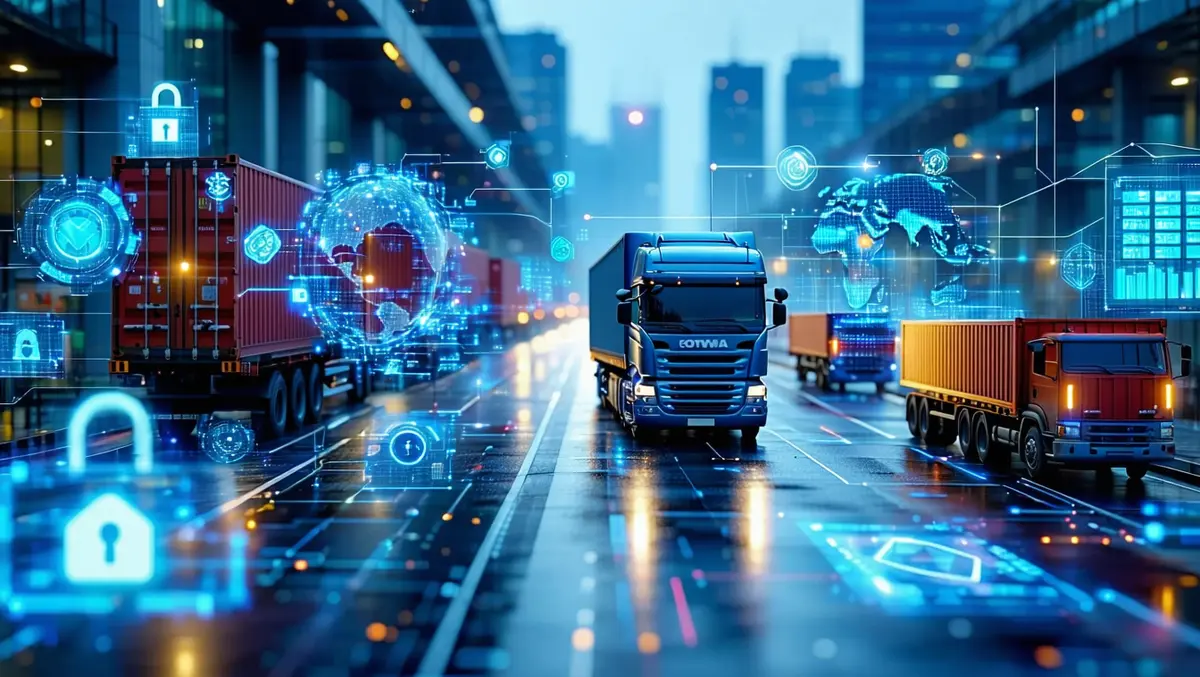
Supply chain trends 2025: cybersecurity & AI focus
Experts from FourKites have revealed their predictions for supply chain trends in 2025, highlighting key areas such as cybersecurity, innovation through AI, and the importance of data normalisation.
Matt Elenjickal, Founder and CEO at FourKites, emphasised the growing necessity for cybersecurity investments in the supply chain sector. "Investment in cybersecurity is no longer an option in 2025. Protection against cybersecurity incidents, which are becoming more frequent and severe, needs to be a top priority for the supply chain industry, which has historically underinvested in this area. As part of every digital transformation effort, it's critical to evaluate existing systems and processes, putting security at the forefront for any new deployments," he stated.
Elenjickal also discussed the impact of AI on market dynamics and workforce development. "New entrants will upend the market as supply chain disruptions remain a fact of life. AI is accelerating innovation in the supply chain industry with the potential to leapfrog incumbents. Do not underestimate the threat of a potential surge in new companies as VC funding and investments in supply chain companies and technology continue to increase," he mentioned.
Regarding the workforce, Elenjickal noted, "AI, automation and upskilling will be critical in 2025. Despite automation being a sticky point for unions, including the ILA, the future is automation and the industry will need to adjust or be left behind. AI and automation are not the enemy and have the potential to create new jobs and improve existing roles, especially when it comes to worker safety. In order for supply chain companies to fully benefit from these technologies, however, they must invest in upskilling their employees."
Stephen Dyke, Principal Consultant Manager at FourKites, forecasted a trend towards IoT standardisation to enhance traceability and transparency. "IoT standardisation will become critical for traceability and transparency across F&B and other key industries. Recent large-scale foodborne illness outbreaks like those at McDonald's and others are driving an increased focus on traceability and transparency. As a result, we're likely to see higher investment in technology, such as IoT standardisation, as well as tighter sourcing scrutiny as companies ensure they have the right protections in place," he explained.
Dyke further commented on the application of IoT in other industries, "IoT standardisation, including temperature and sensory data, will also become critical for traceability and transparency in pharma, high-tech and high-value goods."
The geopolitical and economic challenges were also highlighted by Dyke as significant factors influencing supply chains. "Geopolitical tensions and economic recovery will be the biggest risks to global supply chains in 2025. Manufacturing growth indicators are down and we're not yet out of the woods when it comes to inflation pressure. Expect carriers to seek recovery and leverage with rates and capacity needs. Cost controls, inventory reduction and strategic investment strategies will also be key focus areas for suppliers," he noted.
On the role of AI, Dyke stated, "Data normalisation will be key for supply chain companies looking to use AI for streamlining operations in 2025. Everyone is rich in data, it's time to normalise and adapt 'train' AI into driving operational automation tasks and being directed by human-based decisions. Identifying achievable use cases and benefits will be critical in the immediate term for AI momentum to really begin."
Lastly, Dyke reflected on the future of supply chain resiliency, "2025 is the year that 'Supply Chain Resiliency' becomes the norm. This will lead to an increased investment in Centres of Excellence and AI technology. What were considered global 'black swan' events just two years ago are now a constant consideration for supply chain planning and execution. Resiliency 'actioned' is moving from investments into people, processes and technology with AI playing a key role. Data normalisation is going to be key, along with investing in Centres of Excellence. Additionally, we'll continue to see a trend toward reshoring, which will have an effect on centralisation within applications and logistics networks."


